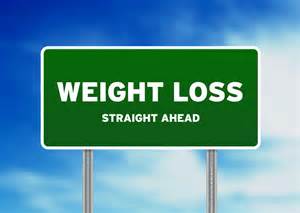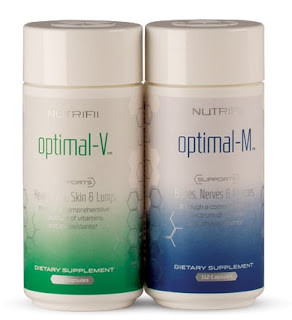Writing Better Weight Loss Goals
Part of the problem with all of my previous attempts to lose weight was that I didn't really have a plan. At least not one that was right for me. I just tried whatever the newest, trendiest weight loss product or diet was around at the time. I didn't know what I wanted to do or how I needed to do it. I just wanted to lose weight.
Now, if you follow my business blog then you know that I am a huge advocate of planning your work and working your plan. So why did I treat weight loss differently? Truthfully, I don't know. But this time, I DO have a plan. And the first step toward making a plan is to have a goal. "I just want to lose weight" doesn't work. I proved that - several times.
Weight loss goals are written just like any other goals. They have to the right kind of goals. Which means they have to be SMART. Again, if you have been around me on the business side of things, then you know what that means. But in case you haven't and don't know, let me explain.
In my first attempt, I simply decided I was going to lose weight. Not a smart goal. Why? Because I never determined how much weight I was going to lose. So even if I only lost a pound or two, I reached my goal. Hard to really create a plan with that criteria!
So then I decided I would lose 50 pounds. Better. But still not great. I didn't determine how long I would take to lose that 50 pounds. So according to that goal, as long as I lost 50 pounds sometime during my lifetime, I was successful. Hard to stay motivated under those circumstances! Because I could always start over tomorrow. I had all the time in the world!
So how do you make a SMART goal? By looking at exactly what that means.
First, a SMART goal is specific. So instead of saying "I will lose weight", I am stating that I will lose 60 pounds.
Second, a SMART goal is measurable. This is fairly easy. By specifically stating how many pounds I am going to lose, I have also made it measureable. All I have to do is step on the scale!
Next, a SMART goal is attainable. That means it has to be something I can accomplish. Is it possible for me to get back down to the 118 pounds I was at when I was in the Navy? Probably not. For many reasons. That would require some extreme measures or a longer period of time than I am willing to give. Plus that is probably not a healthy weight for me. There is such a thing as too thin! And since I know in my heart I probably couldn't make it, I would not be motivated to even try very hard. But can I lose 60 pounds? That would put me at 150. Some might feel that is still not an ideal weight. But for me it is acceptable and achievable. It is also physically possible. And I should be able to reach that weight in a reasonable amount of time.
A SMART goal also has to be realistic. You might think that is the same as attainable but there are some differences. Suppose I say I am going to lose 60 pounds in 30 days? Realistic? NO! All I would do is set myself up for failure.
Finally, a SMART goal has to be time based. Which means I have to give myself an time period to reach my goal. Will I lose 60 pounds in 6 months? 12 months? Whatever period I choose, I must decide when I will finish my goal.
Now that you know how to formulate a SMART goal, the last step towards creating a weight loss plan is to write your goal down. It has been shown that those who put their goals in writing are more likely to achieve them.
And if you want to increase your chances even further, share them!
So - here goes. I will lose 60 pounds by August 1st. I can probably do it sooner, but I am setting the August 1st deadline because I have tickets to the MSLP LTD 10th Anniversary Gala. And I want to be able to fit into a gorgeous evening gown!
Now that I have my goal, I am ready to start creating my plan to reach it.
What about you? Do you have a weight loss goal? Are you ready to share it? If so, post it here and then let's get started on reaching it!
Now, if you follow my business blog then you know that I am a huge advocate of planning your work and working your plan. So why did I treat weight loss differently? Truthfully, I don't know. But this time, I DO have a plan. And the first step toward making a plan is to have a goal. "I just want to lose weight" doesn't work. I proved that - several times.
Weight loss goals are written just like any other goals. They have to the right kind of goals. Which means they have to be SMART. Again, if you have been around me on the business side of things, then you know what that means. But in case you haven't and don't know, let me explain.
In my first attempt, I simply decided I was going to lose weight. Not a smart goal. Why? Because I never determined how much weight I was going to lose. So even if I only lost a pound or two, I reached my goal. Hard to really create a plan with that criteria!
So then I decided I would lose 50 pounds. Better. But still not great. I didn't determine how long I would take to lose that 50 pounds. So according to that goal, as long as I lost 50 pounds sometime during my lifetime, I was successful. Hard to stay motivated under those circumstances! Because I could always start over tomorrow. I had all the time in the world!
So how do you make a SMART goal? By looking at exactly what that means.
First, a SMART goal is specific. So instead of saying "I will lose weight", I am stating that I will lose 60 pounds.
Second, a SMART goal is measurable. This is fairly easy. By specifically stating how many pounds I am going to lose, I have also made it measureable. All I have to do is step on the scale!
Next, a SMART goal is attainable. That means it has to be something I can accomplish. Is it possible for me to get back down to the 118 pounds I was at when I was in the Navy? Probably not. For many reasons. That would require some extreme measures or a longer period of time than I am willing to give. Plus that is probably not a healthy weight for me. There is such a thing as too thin! And since I know in my heart I probably couldn't make it, I would not be motivated to even try very hard. But can I lose 60 pounds? That would put me at 150. Some might feel that is still not an ideal weight. But for me it is acceptable and achievable. It is also physically possible. And I should be able to reach that weight in a reasonable amount of time.
A SMART goal also has to be realistic. You might think that is the same as attainable but there are some differences. Suppose I say I am going to lose 60 pounds in 30 days? Realistic? NO! All I would do is set myself up for failure.
Finally, a SMART goal has to be time based. Which means I have to give myself an time period to reach my goal. Will I lose 60 pounds in 6 months? 12 months? Whatever period I choose, I must decide when I will finish my goal.
Now that you know how to formulate a SMART goal, the last step towards creating a weight loss plan is to write your goal down. It has been shown that those who put their goals in writing are more likely to achieve them.
And if you want to increase your chances even further, share them!
So - here goes. I will lose 60 pounds by August 1st. I can probably do it sooner, but I am setting the August 1st deadline because I have tickets to the MSLP LTD 10th Anniversary Gala. And I want to be able to fit into a gorgeous evening gown!
Now that I have my goal, I am ready to start creating my plan to reach it.
What about you? Do you have a weight loss goal? Are you ready to share it? If so, post it here and then let's get started on reaching it!



Comments
Post a Comment